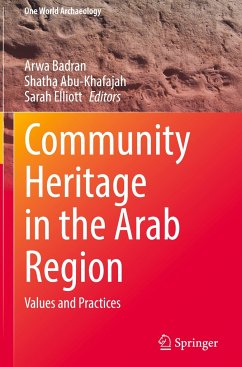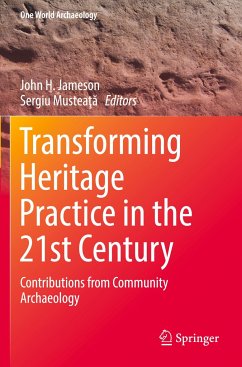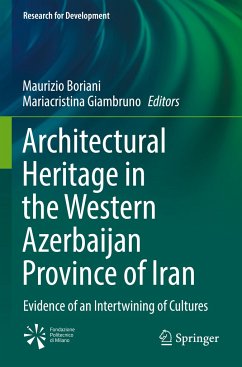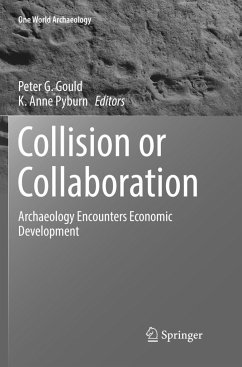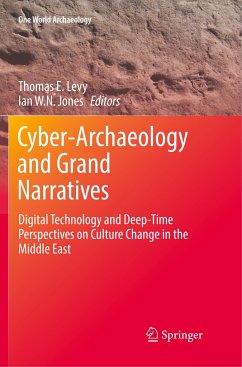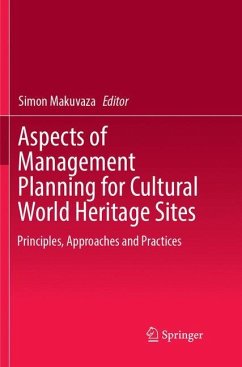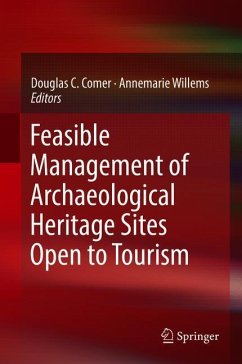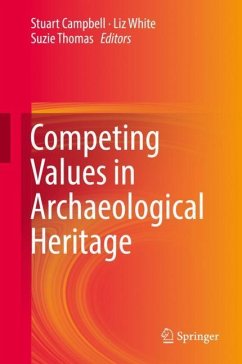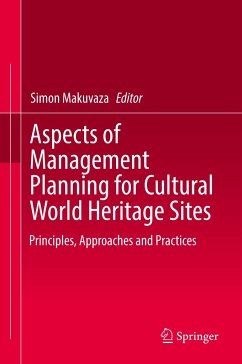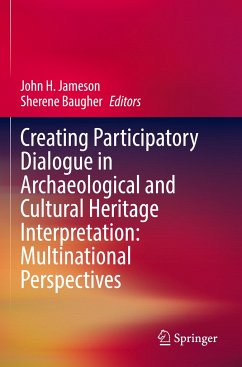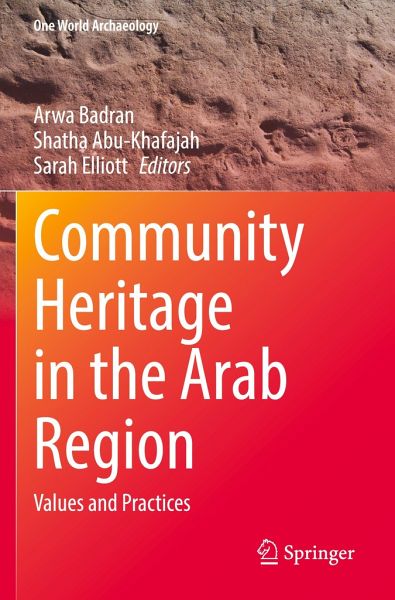
Community Heritage in the Arab Region
Values and Practices
Herausgegeben: Badran, Arwa; Abu-Khafajah, Shatha; Elliott, Sarah
Versandkostenfrei!
Versandfertig in 6-10 Tagen
49,99 €
inkl. MwSt.

PAYBACK Punkte
25 °P sammeln!
This book investigates approaches to community heritage within the Arab region and the underlying theories associated with these approaches. It aims, within the context of the region, to define 'community' and 'heritage', as well as examine the emergence and development of this field. The volume's contributors deploy a wealth of case studies from the Middle East and North Africa to provide a unique forum for discussion, comparability, analysis and deeper understandings of current trends in community heritage.In particular, the volume explores the relationship between communities and their heri...
This book investigates approaches to community heritage within the Arab region and the underlying theories associated with these approaches. It aims, within the context of the region, to define 'community' and 'heritage', as well as examine the emergence and development of this field. The volume's contributors deploy a wealth of case studies from the Middle East and North Africa to provide a unique forum for discussion, comparability, analysis and deeper understandings of current trends in community heritage.
In particular, the volume explores the relationship between communities and their heritage, the meanings and values placed upon it, the nature and degree of community participation and engagement in its interpretation and management, and how its different registers affect and produce sometimes unexpected community heritage formations. It also examines the level of responsibility held within the profession towards this essentially democratic process of public participation in their heritage in a region shaped by controversial histories, political turmoil and tourism-driven economies.
The volume builds on current research and practice in community heritage globally by debating and re-centring a suite of familiar and new issues related to hitherto under-researched regional-specific methodologies, and developing fresh insight into the theoretical underpinning of these practices. It will be of value to heritage scholars and practitioners as well as those interested in politics, identity, education and the dynamics of heritage-based sustainable development.
In particular, the volume explores the relationship between communities and their heritage, the meanings and values placed upon it, the nature and degree of community participation and engagement in its interpretation and management, and how its different registers affect and produce sometimes unexpected community heritage formations. It also examines the level of responsibility held within the profession towards this essentially democratic process of public participation in their heritage in a region shaped by controversial histories, political turmoil and tourism-driven economies.
The volume builds on current research and practice in community heritage globally by debating and re-centring a suite of familiar and new issues related to hitherto under-researched regional-specific methodologies, and developing fresh insight into the theoretical underpinning of these practices. It will be of value to heritage scholars and practitioners as well as those interested in politics, identity, education and the dynamics of heritage-based sustainable development.



